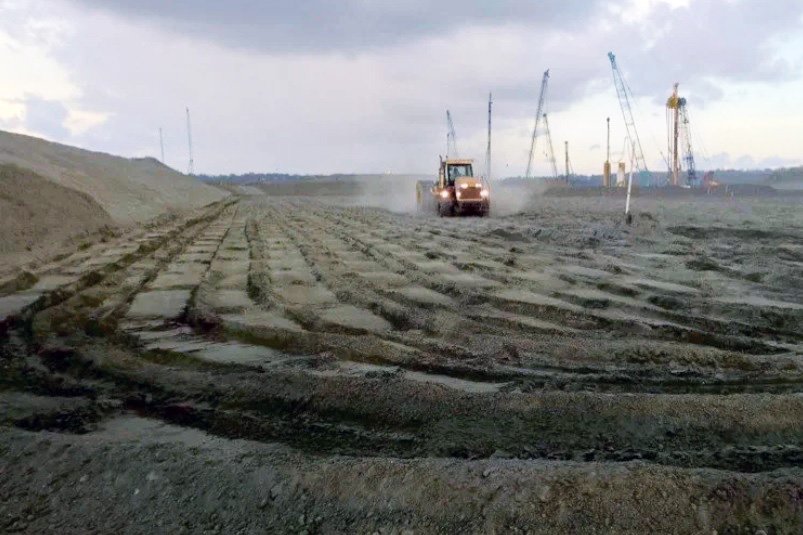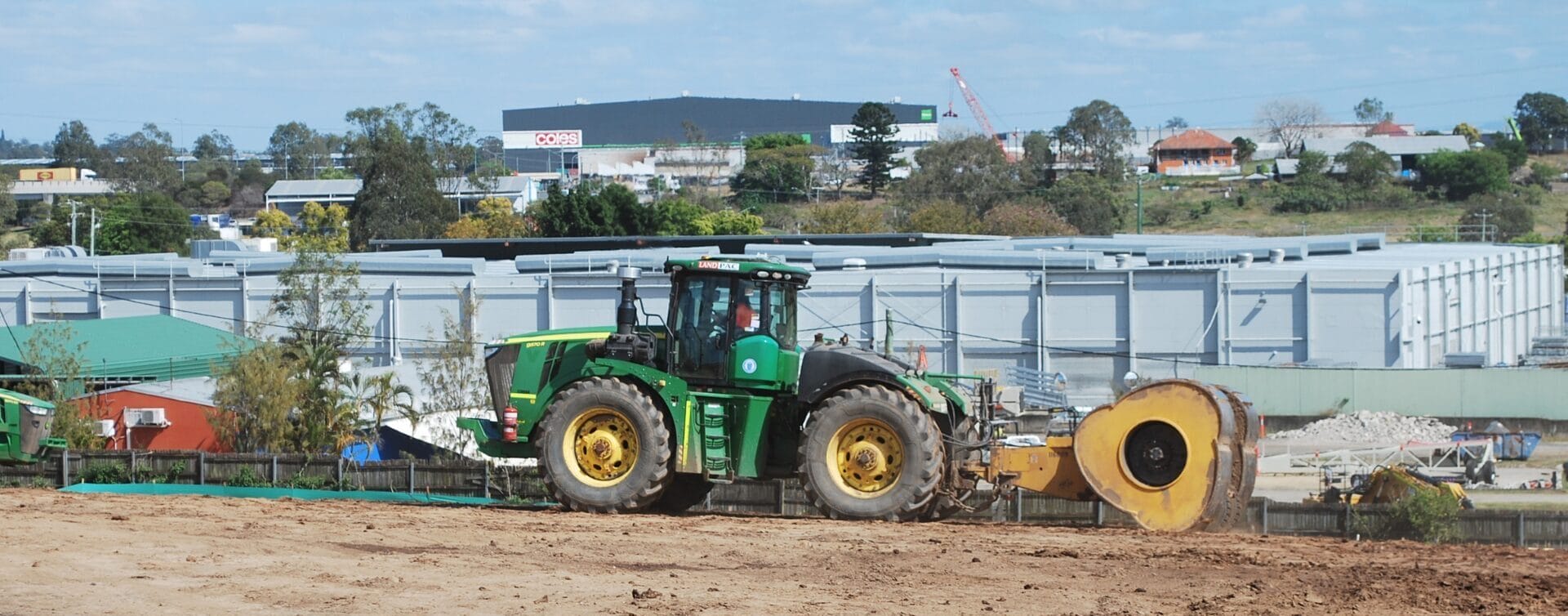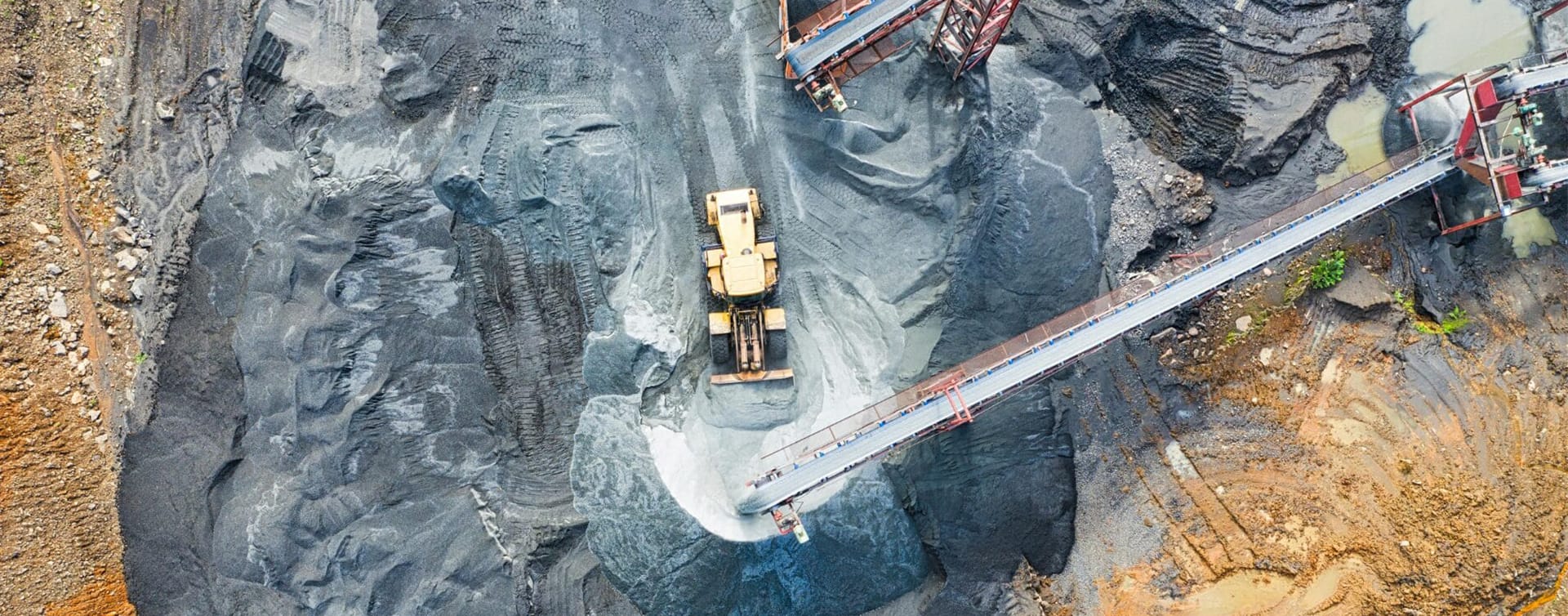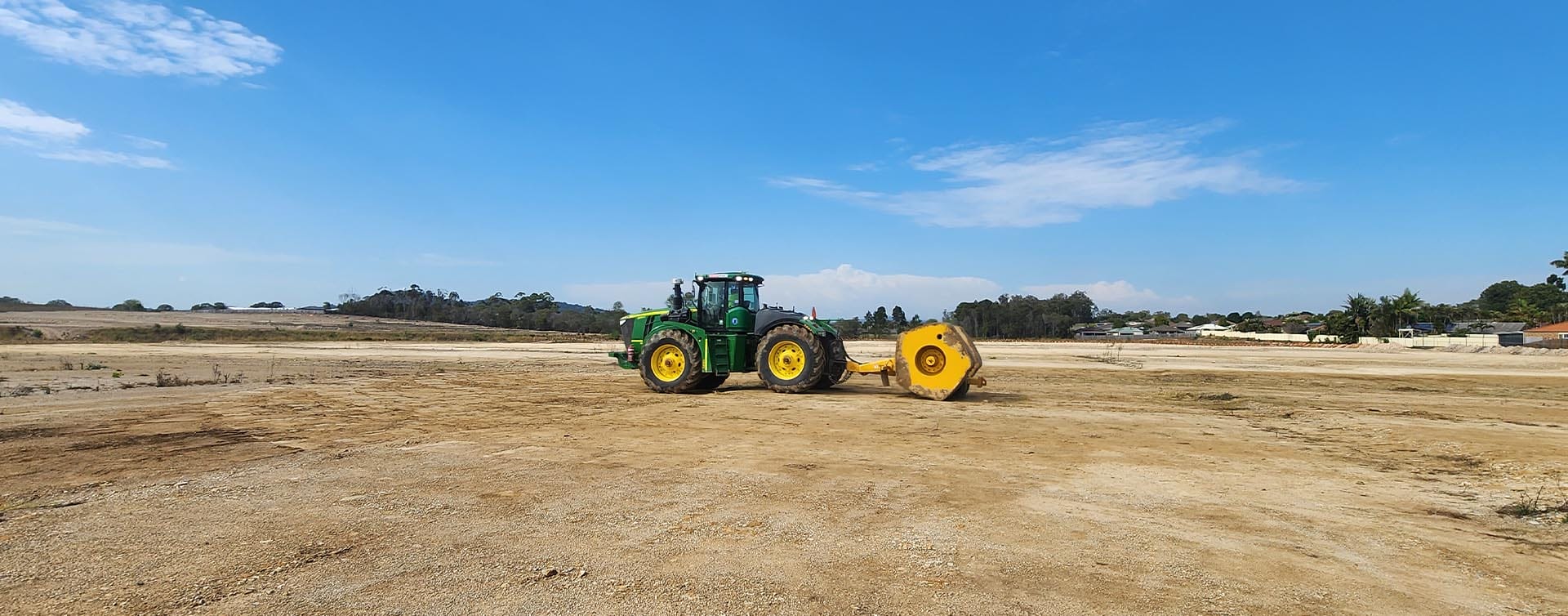Infrastructure Development with HEIC
The Pivotal Role of Landpac's High Energy Impact Compaction in Airport, Road, and Port Construction
In the demanding arena of infrastructure development, encompassing the construction of airports, roads, and ports, the role of a strong foundation is paramount. Landpac’s High Energy Impact Compaction (HEIC) is a cornerstone in this domain, offering a ground-breaking ground improvement technology that significantly enhances soil properties. By delivering controlled, high-energy impacts, HEIC increases soil density, load-bearing capacity, and stability, crucial for the long-term durability of infrastructure.
This is particularly vital in airport construction, where HEIC’s ability to ensure soil uniformity and stability is key to preventing runway issues like differential settlement and surface cracking, thereby enhancing safety and reducing maintenance needs.

Laying the Foundation for Tomorrow's Infrastructure
In infrastructure development, whether it’s constructing airports, roads, or ports, the importance of a robust foundation cannot be overstated. Here, High Energy Impact Compaction (HEIC), a specialised service offered by Landpac, plays a critical role.
HEIC is a cutting-edge ground improvement technique that enhances the engineering properties of soil. It works by delivering controlled, high-energy impacts to increase soil density, thereby boosting its load-bearing capacity and stability – key factors for enduring infrastructure.
A Runway for Safety and Efficiency
For airports, where the safety and smooth operation of runways and taxiways are paramount, HEIC provides an ideal solution. By enhancing soil density and uniformity, HEIC offers a stable base capable of supporting the heavy weights of aircraft. This improvement is crucial in preventing issues like differential settlement and surface cracking, thereby contributing to safer aircraft operations and reducing maintenance needs.
The Path to Durability
The foundation is equally important in road construction. Roads must endure continuous traffic, necessitating a base that can withstand such stresses. HEIC significantly improves ground resilience and load-bearing abilities, helping to prevent common problems like potholes and rutting. The result is smoother, safer roads with lower maintenance requirements and extended longevity.
Anchoring Global Commerce
Ports are critical hubs in global trade, bearing the weight of cranes, containers, and ships. HEIC effectively densifies the soil in port areas, enhancing its strength and stability. This is vital not only for the safe operation of port facilities but also for minimising ground settlement risks, which could disrupt operations and lead to expensive repairs.

Intelligent Compaction Measurement
In ground compaction, Landpac is at the forefront of integrating intelligent compaction measurement systems into its High Energy Impact Compaction (HEIC) services. This state-of-the-art approach significantly enhances the precision and effectiveness of HEIC, ensuring optimal soil compaction—a key element for the longevity and performance of any infrastructure project. By providing operators with real-time information on the compaction process through a display in the cab, the system utilises advanced guidance (GNSS) and sensor technology (accelerometer). This setup allows operators to have a heightened awareness of the areas that have been compacted and those that still require attention, thereby streamlining the process.
The intelligent compaction measurement technology revolutionises the traditional methods by eliminating common issues of overcompaction and undercompaction, offering immediate on-the-fly feedback. This innovation not only ensures consistency in compaction but also extends the capability to track it across various machines. The accelerometer, mounted on the drum of the roller, is a game-changer in monitoring compaction consistency. It’s not just about ensuring firmness; the system also excels in measuring the stiffness of the soil through vibration analysis, which can highlight any soft spots that may compromise infrastructure integrity. Additionally, it monitors the Compaction Meter Value (CMV) across the entire site, providing a comprehensive view of the soil’s compaction levelver time, sports fields can suffer from differential settlement, resulting in an uneven playing surface that can be dangerous for players and detrimental to the field’s functionality. HEIC’s thorough compaction process significantly reduces the risk of such settlement, thereby prolonging the life and usability of the field.
Efficiency and Sustainability
HEIC stands out for its speed and efficiency, compacting larger areas to greater depths more swiftly than traditional methods. This efficiency accelerates project timelines and brings about significant cost savings. Moreover, HEIC aligns with environmental sustainability goals, as it minimises the need for additional fill materials and reduces transportation-related carbon emissions.
How HEIC and Intelligent Compaction is paving the path for durable infrastructure
High Energy Impact Compaction (HEIC) stands as a cornerstone in the construction of durable, reliable, and sustainable infrastructure. Its ability to enhance soil properties is vital in ensuring that today’s infrastructure — encompassing roads, airports, and ports — remains functional and robust for future generations. This technology not only increases soil density and load-bearing capacity but also ensures uniformity and stability, which are crucial for the long-term integrity of these projects.
Furthermore, the integration of intelligent compaction measurement technology elevates the efficacy of HEIC. This advanced approach provides real-time data and analysis, allowing for precise control and optimisation of the compaction process. It ensures that every segment of the infrastructure meets the highest standards, enhancing safety and reducing the need for future repairs.
The synergy between Landpac’s HEIC and intelligent compaction measurement is more than just an advancement in construction technology; it’s a commitment to building infrastructure that can withstand the test of time and usage. By laying down a foundation that prioritises durability, reliability, and sustainability, Landpac’s innovations pave the way for infrastructure that not only serves our current needs but also secures a resilient and efficient framework for future generations.
The base on which progress is built
High Energy Impact Compaction (HEIC) is at the foundation of the projects that build key infrastructure assets such as shipping terminals, airports and other transport networks. You can rely on HEIC for major projects. Get in touch to learn more.
Latest news

Uncontrolled vs Contaminated Fill | Why It Matters
Understand the difference between uncontrolled and contaminated fill, the risks of each, and how Landpac’s HEIC method delivers safe, stable ground.

High-Energy Impact Compaction in Australian Mining
From haul roads in WA to tailings dams in QLD, High-Energy Impact Compaction (HEIC) is reshaping ground improvement across Australia’s mining operations. Backed by Intelligent Compaction Measurement (ICM), HEIC delivers faster, deeper, and more reliable results, boosting safety, sustainability, and cost-efficiency in some of mining’s toughest conditions.

Understanding High Energy Impact Compaction (HEIC)
High Energy Impact Compaction (HEIC) revolutionises ground improvement with its ability to achieve superior soil density and stability. Unlike traditional methods, HEIC uses advanced rollers and compaction technology to penetrate deeper soil layers.
